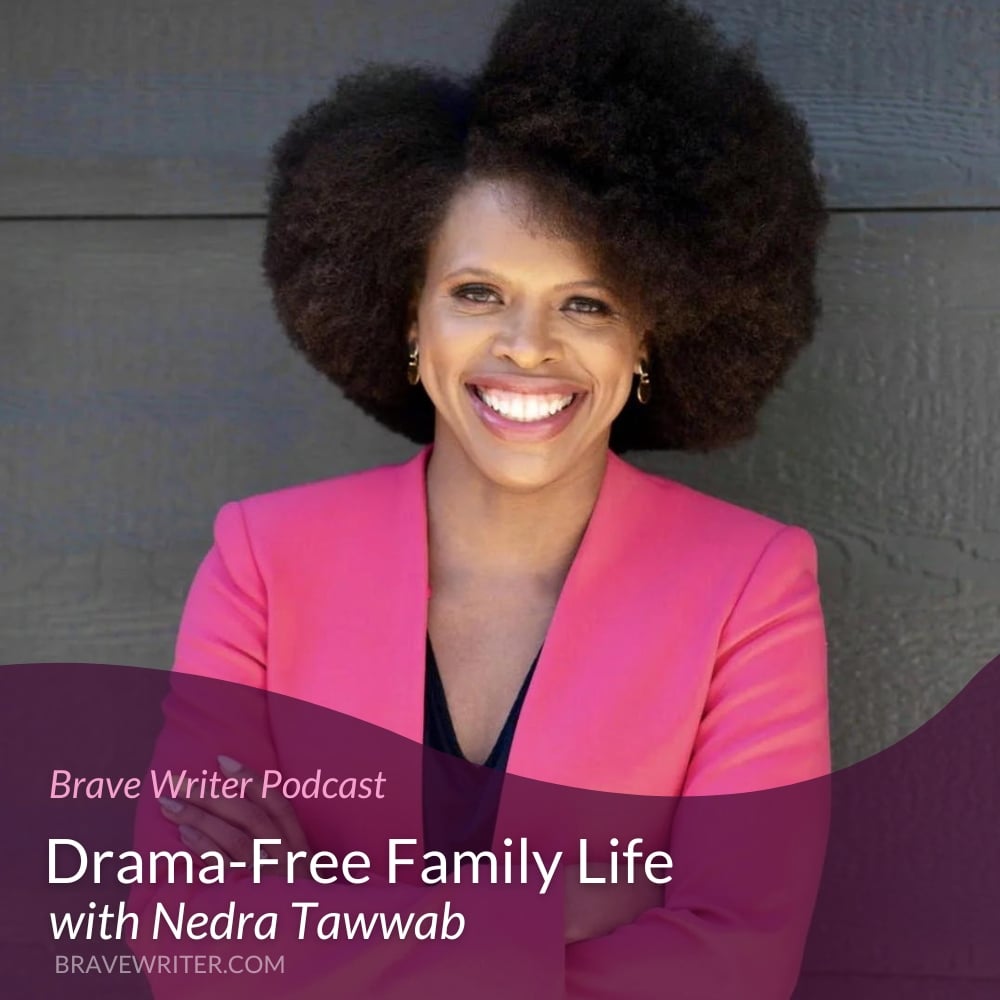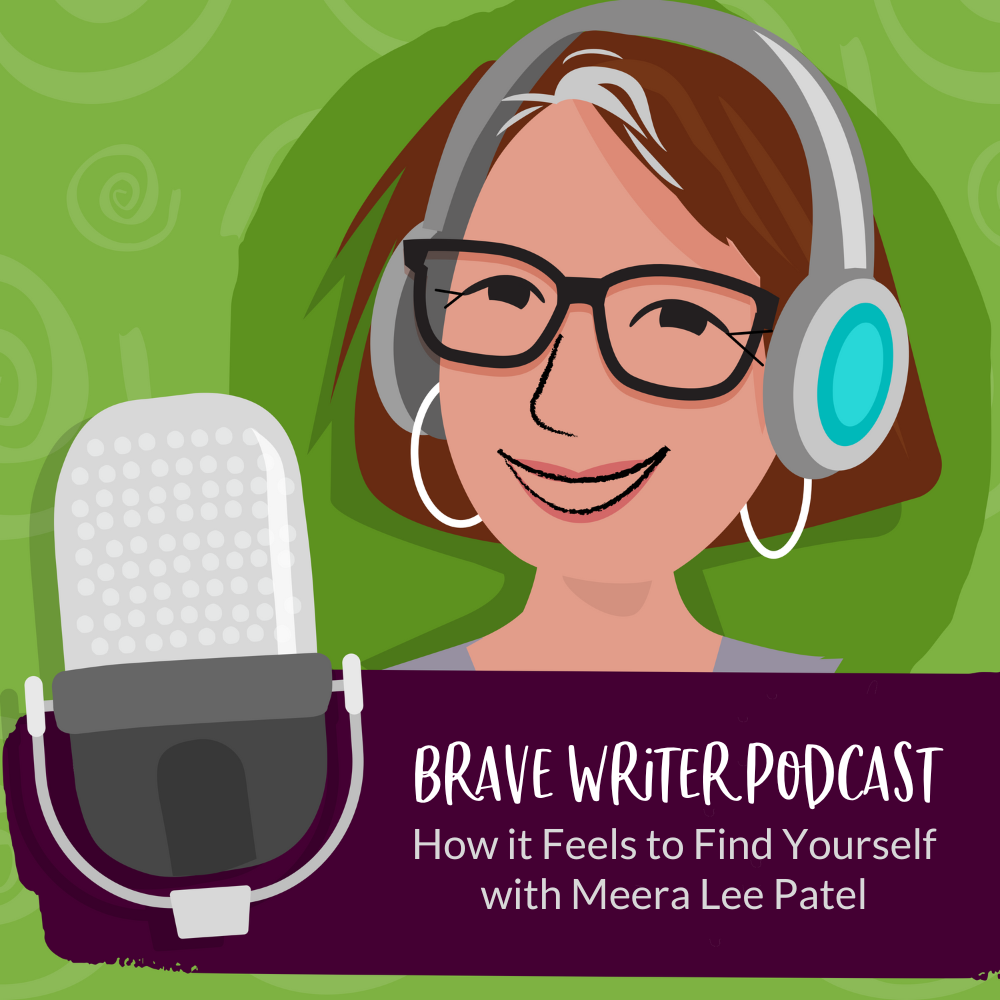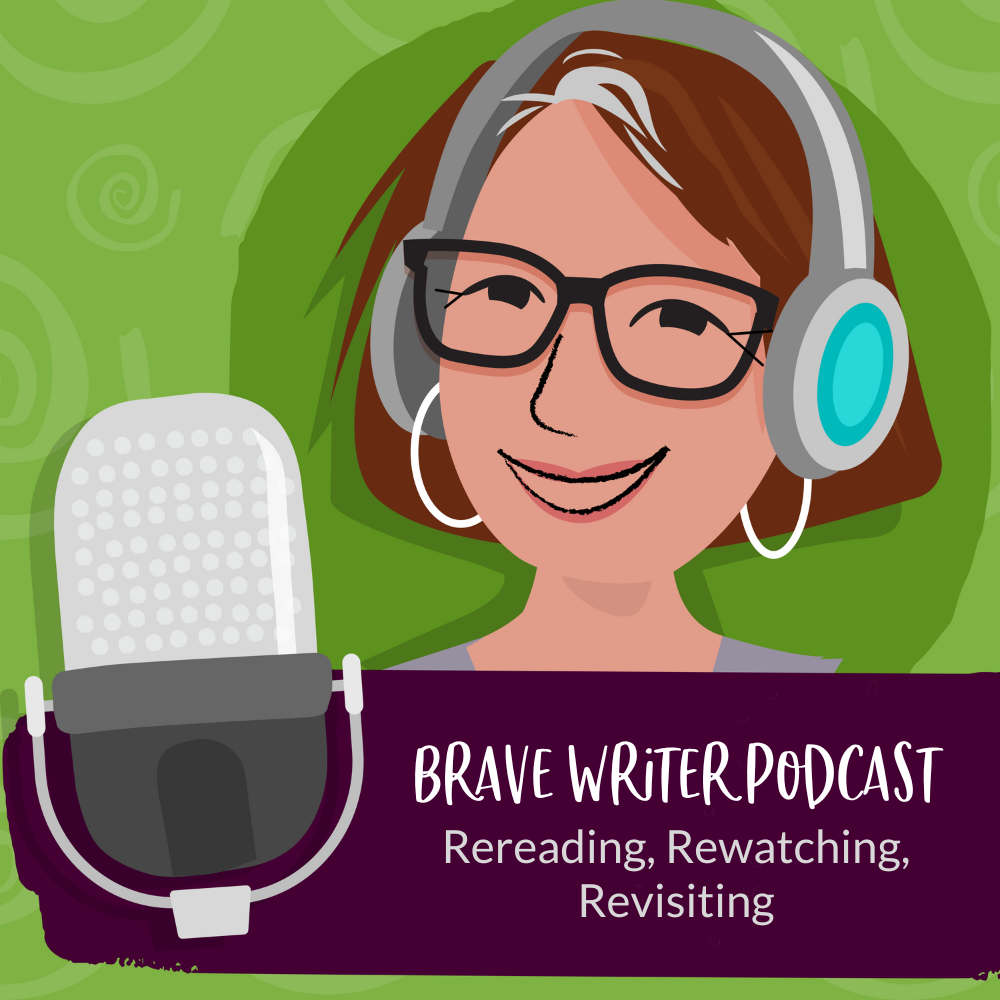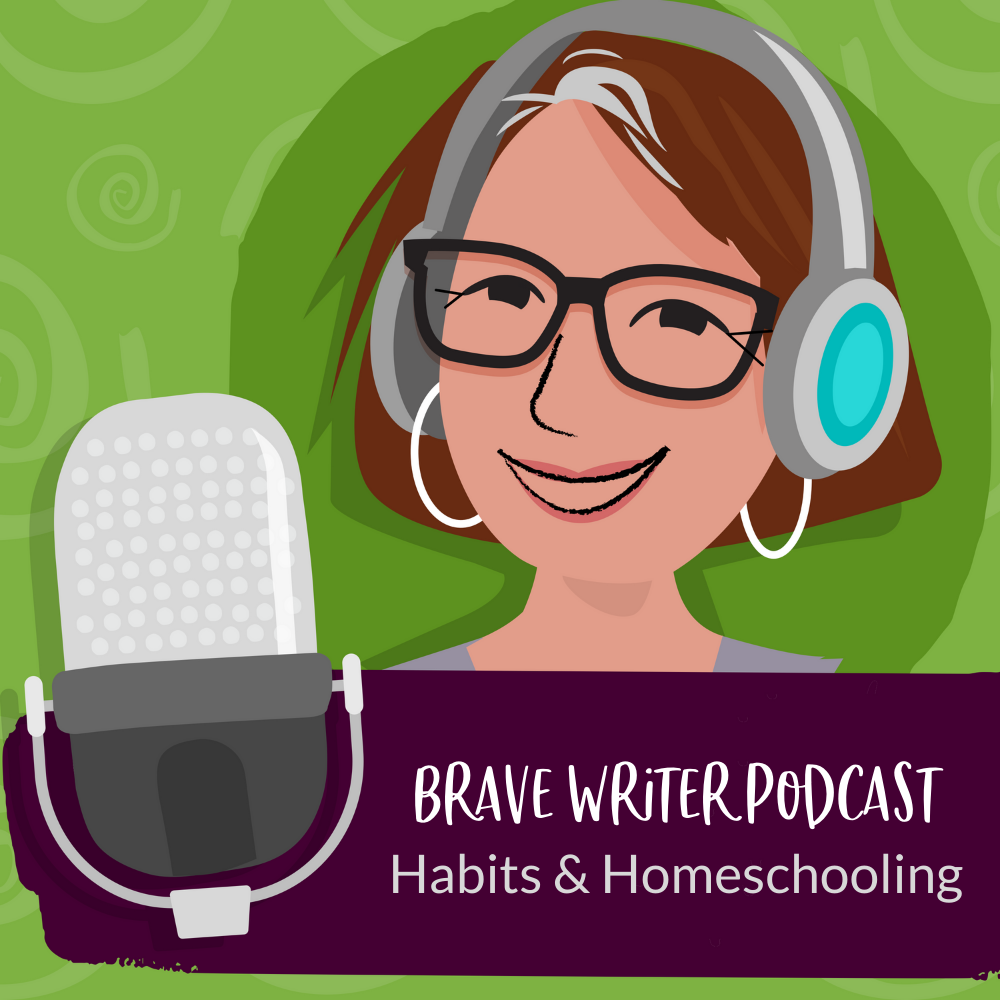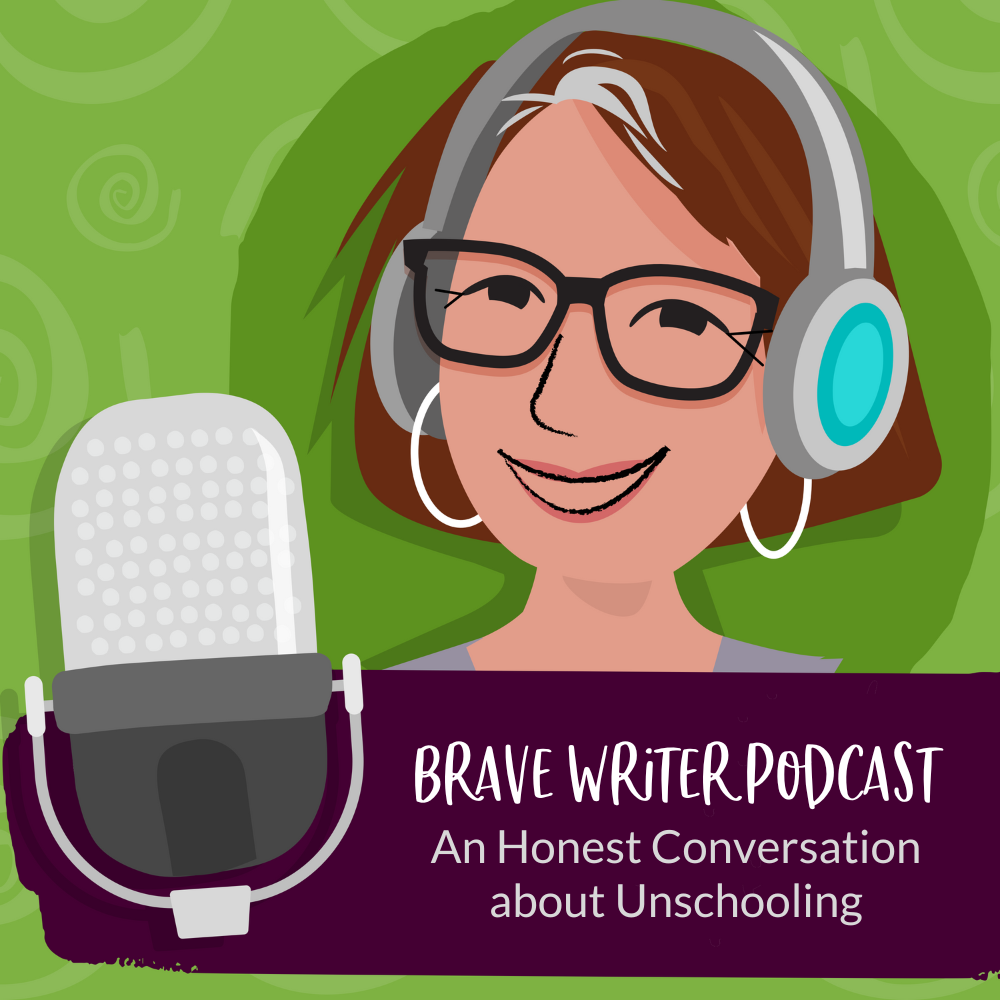
Are you a homeschooling parent who has heard about unschooling but isn’t quite sure what it means, or whether it’s right for your family?
Don’t worry, you’re not alone!
Unschooling is a flexible and learner-centered approach to education that encourages:
- curiosity,
- self-direction,
- and personal growth.
In this Brave Writer podcast, we’ll dive into the world of unschooling and share some valuable insights, experiences, and advice to help you navigate this alternative approach to learning.
Show Notes
Understanding the Principles of Unschooling
First, let’s start by understanding the principles of unschooling. Unschooling is not anti-education but rather an alternative approach to learning that follows a child’s interests and allows them to learn at their own pace.
The philosophy, coined by educator John Holt, supports a learner-centered approach that encourages curiosity and personal growth. It’s important to differentiate between unschooling and radical unschooling, with the latter involving complete relinquishment of control and structure in a child’s life, including non-academic aspects like bedtimes and mealtimes.
Utilizing Resources and Methods in an Unschooling Environment
Unschooling doesn’t mean you need to shut the door on traditional educational resources. Instead, you can make use of tutors, classes, field trips, workbooks, and textbooks, alongside allowing your child to pursue their interests and passions. The key is to create a rich and flexible learning environment that:
- encourages exploration
- and supports your child’s unique learning style.
Embracing Change and Trusting the Process
One of the challenges of unschooling is letting go of expectations and recognizing that children’s interests and passions may change over time. It’s essential to remember that the skills and experiences your child gains through unschooling contribute to the “compost” of their personal development, rather than defining them by specific roles or accomplishments. Embrace the uncertainty and trust in the process, as this will ultimately help your child grow into a well-rounded and adaptable individual.
Unschooling offers a unique and flexible approach to education that can be tailored to suit the needs and interests of each child. It’s important to be open to change and not be bound by a specific educational philosophy or label.
Whether you decide to fully embrace unschooling or simply incorporate some of its principles into your homeschooling journey, remember that the ultimate goal is to support your child’s curiosity, growth, and individuality. Don’t be afraid to explore and adapt because, after all, learning is a lifelong adventure.
Resources
- It’s that time of year: We’re announcing the new book list for the coming school year! Save the dates, June 1st and 2nd, and sign up for our newsletter to stay in the loop at bravewriter.com/news.
- Visit bravewriter.com/online-classes to help your young writer finish the school year strong!
- Sign up for our Text Message Pod Ring to get podcast updates and more!
- Send us podcast topic ideas by texting us: +1 (833) 947-3684
- Want help getting started with Brave Writer? Go to bravewriter.com/getting-started
- Sign up for the Brave Writer newsletter to learn about all of the special offers we’re doing in 2022 and you’ll get a free seven-day Writing Blitz guide just for signing up: https://go.bravewriter.com/writing-blitz
Connect with Julie
- Instagram: instagram.com/juliebravewriter
- Twitter: twitter.com/bravewriter
- Facebook: facebook.com/bravewriter


